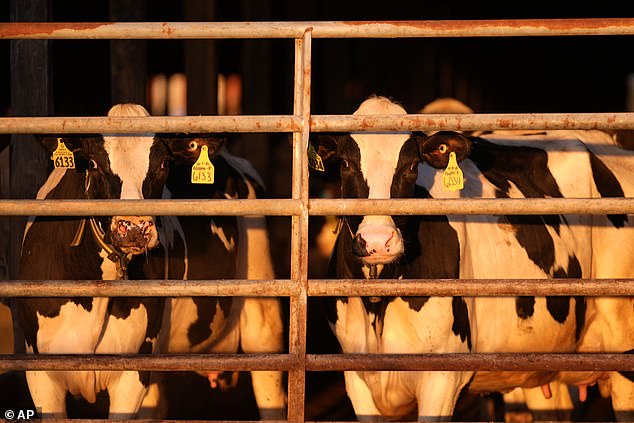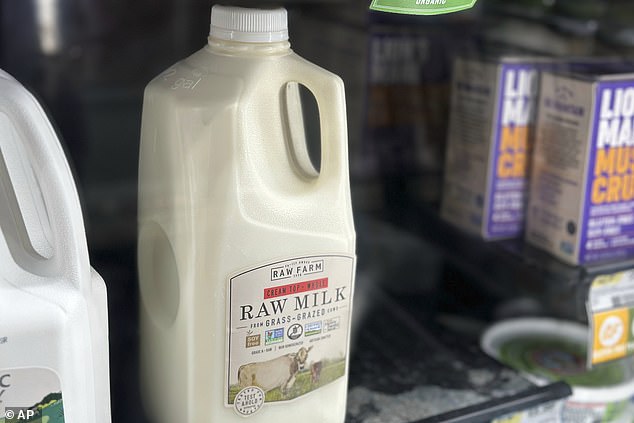Deadly bird flu has been found in raw cow’s milk and could survive standard pasteurization, a study suggests.
Scientists analyzed milk samples from H5N1-infected herds in New Mexico and found high levels of the virus, even after being refrigerated at 4°C (39°F).
It means that animals that drink milk, including humans, are at risk of contracting it.
When the mice were fed untreated milk, they showed signs of illness from day one and the virus was detected in their respiratory systems and other organs in their body.
The researchers heat-treated the milk at 72°C, similar to how milk is pasteurized in supermarkets, for various periods of time.
Raw milk is available in some health food stores and trendy coffee shops.

Bird flu has been found in chickens in the UK, but no cases have been reported in cows.
In the UK, milk must be heated for at least 15 seconds and no longer than 25 seconds.
The researchers found that the virus was reduced, but not eliminated, even after 20 seconds of heating. Only after 25 seconds it was destroyed.
They wrote in the New England Journal of Medicine: ‘Our data indicate that the H5N1 virus present in untreated milk can infect susceptible animals that consume it.
«Heat treatment for 15 or 20 seconds reduced virus titers by more than 4.5 log units, but did not completely inactivate it.
“H5N1-positive milk poses a risk if consumed without treatment.”
However, the researchers admitted that it was impossible for them to precisely replicate industrial pasteurization methods in their laboratory.
Raw milk is available in certain health food stores, trendy coffee shops, and directly from artisanal dairies.
The virus was confirmed in commercial poultry in England in February, however no cases of the virus have been reported in UK cows.
Meanwhile, World Health Organization disease expert Maria van Kerkhove said bird flu may be the cause of a future pandemic.
She said: ‘It has infected many different species. That’s why we have a whole system in place to be prepared for this.
‘I’m not saying this to scare people, but for us it’s something we have to be prepared for.
‘We have to think outside the box. We really prepared for known threats, but we also thought about something different, maybe waterborne or whatever.
‘So, for me, pandemics, unfortunately, are part of what we will face throughout our lives. “I don’t think (Covid) will be the last pandemic we will face in our lifetimes.”


